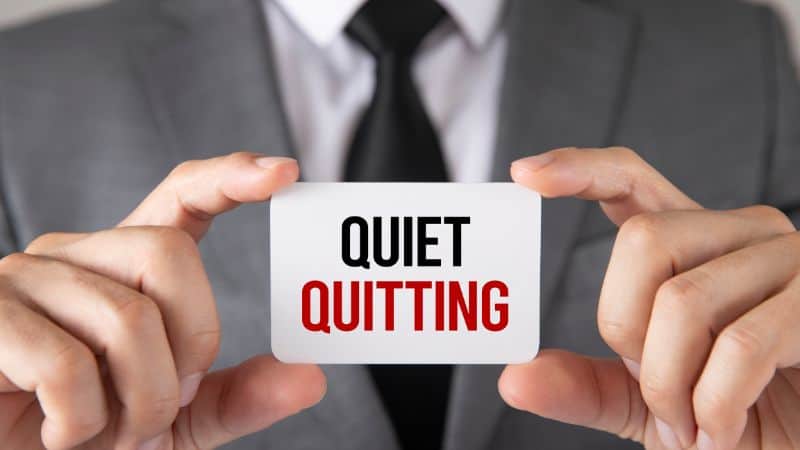Commitment is the state or quality of being dedicated to a cause, activity, or goal. It’s about making a choice and sticking with it, despite the obstacles and challenges that come your way. A commitment is a pledge to do something, see it through to the end, and not waver in your determination.
It’s about persistence and the willingness to do whatever it takes to fulfill and honor a promise or a plan. Whether it’s committing to a relationship, a job, a personal project, or a set of values, commitment is about being steadfast in your decisions and actions.
In practical terms, commitment means not giving up when things get tough. It’s about continuing to put in the effort even when you’re tired, frustrated, or facing failure. It’s what keeps you going back to the gym every day when you’re trying to get in shape, or what drives you to spend hours practicing a musical instrument.
At its core, commitment is about aligning your actions with your decisions and goals over the long term. It’s the fuel for personal growth and achievement, helping turn aspirations into realities.
The Tagalog word for “commitment” is “pangako,” which refers to a promise or a pledge to do something. Another term that can also be used is “pagtatalaga,” which conveys dedication or devotion to a particular task or cause. Both terms capture the essence of commitment — staying true to an obligation, duty, or undertaking.

Quiet Quitting, Detachment, and the Absence of Commitment
Quiet quitting—the act of doing just enough to meet your job requirements but no more—is a signal, perhaps not of laziness, but of a lack of commitment. It’s what happens when the drive to excel and the passion for one’s work flickers out.
On the other side, detachment is a survival tactic, allowing professionals to separate their identity from their job, preserving their well-being by not internalizing every high and low of their work life.
But there’s a thin line here.
Detachment, when used as a shield, can help maintain a healthy perspective. It’s about caring for your work without letting the work consume you. It’s understanding that you play a role but are not solely defined by that role.
However, too much detachment, especially when coupled with quiet quitting, can lead to disinterest and a decline in workplace engagement and morale.
The absence of commitment, when it extends to quiet quitting, means projects lack vibrancy, collaboration suffers, and innovation stalls. Work becomes a transaction, not a transformation. Growth—both personal and organizational—slows down because the fuel of commitment isn’t there to push boundaries or inspire excellence.
On a personal level, not committing can mean missing out on the satisfaction that comes from seeing a job well done, from knowing you’ve contributed to something bigger than a paycheck. It might also mean fewer opportunities for advancement, as commitment is often a precursor to recognition and promotion.
The balance is delicate.
Complete emotional investment in work with no detachment can lead to burnout, while commitment without detachment can mean that failures at work feel like personal failures. Therefore, the key is to find the sweet spot where you can be fully present and perform at your best, without letting your job define your entire existence.
A lack of commitment, especially when it takes the form of quiet quitting, can sap the strength of a workplace and the fulfillment of its workforce. But detachment practiced wisely, allows for a focused and balanced approach to work—one that acknowledges the role without letting it overshadow everything else.

Why People Choose Not to Commit
One key reason people may not commit is fear of failure. Committing to a goal or project puts someone on the line to be judged by the outcomes of their efforts.
When they commit, they risk not only the actual failure of not achieving the goal but also the psychological weight of that failure—how it makes them feel about themselves and how others perceive their capabilities.
Fear of failure encapsulates many concerns: fear of not meeting expectations (both self-imposed and from others), fear of wasting time on the wrong endeavor, fear of the unknown, and fear of losing out on other opportunities.
This fear can be paralyzing because it’s tied to our identity and sense of self-worth. People often protect themselves from potential failure by not fully committing, as this gives them a sort of ‘out,’ a way to rationalize any lack of success by saying they never really tried.
Moreover, when people don’t commit, they maintain a level of control—they can’t be held accountable for failing at something they never promised to do. This avoidance is a natural defense mechanism against the vulnerability that comes with putting one’s full effort into something.
Understanding this fear and addressing it directly is essential for overcoming the barrier to commitment. It involves creating a safe environment for risk-taking, offering support after setbacks, and valuing the learning process as much as the end result.
Flip the Switch
Decide what’s essential and let that guide you. Say it out loud, make it known, and let that declaration be your commitment coming to life. Commitment is a choice that you keep making, in small steps, every single day.
Cut off the paths that lead back to non-commitment. When you stop giving yourself the option to back out, you’re telling yourself that you’re in it to win it. This is the essence of personal accountability: it’s all on you, and that’s a powerful place to be.
Embrace the hard work and the learning that comes with it. When you commit, you’re not just signing up for the outcome; you’re signing up for the journey. The trials, the errors, the wins—each is a part of the process.
Flip the switch. Dive in. Be accountable for your journey. There’s no such thing as a half-hearted success story. Commitment is the full, all-in decision that turns ‘one day’ into ‘day one.’

Learning Commitment
Commitment is like a secret ingredient that turns your effort into skill. It’s not about being born talented; it’s about choosing to dive in and work hard, even when it gets tough. Think about it like this: anyone can get good at playing the flute, coding in C++, or playing soccer if they decide to stick with it through thick and thin.
The problem is, many of us wait. We wait to feel like we’re good at something before we decide to commit.
It’s like saying, “Show me I can be good at this without too much trouble, and then I’ll put in the real effort.”
But that’s backwards. Learning is messy. It’s full of stumbles and falls. And waiting to be sure you’ll excel before you commit is like wanting to win a race without running the laps.
Imagine if schools focused on teaching us how to commit first. If they did, they’d turn out unstoppable people.
Because with commitment, you can access the drive needed to use resources, practice persistently, and not give up when failures pile up.
Remember, the best teachers don’t just fill your head with facts or techniques. They teach you how to commit. Because once you’re truly committed, you’re on your way to becoming excellent at whatever you choose to do.
One-hour Commitment
Commitment doesn’t need to be all-consuming; it can start with just one hour each day. That’s right, only one hour where you’re completely devoted to your work, your art, or your learning. In this hour, there’s no room for doubt or hesitation—only action.
Imagine you give one focused hour to writing, exercising, or any other pursuit you’re passionate about. During that hour, you’re not just trying; you’re doing. You’re not playing at your work; you’re fully in it, as committed as if it were the only thing in the world.
This kind of commitment, where you’re all in for a set time, can lead to huge leaps in progress. It’s about quality, not quantity. It’s about saying, “This is my time to push, to grow, to make things happen.”
And when that hour is up, you’ll be surprised at how much you’ve accomplished. By being 100 percent committed during that time, you build a bridge to mastering your craft, one hour at a time.
Start by saying “yes” to a challenge, and that’s when you commit. With commitment, you’re telling yourself and the world that you’re serious. And from this serious promise, confidence begins to grow. It’s like planting a seed. You commit to taking care of it, and as it grows, so does your belief in your green thumb.
Commitment Is the Beginning
Commitment is the first step. When you commit, you put skin in the game. You start taking action, and every step you take builds your confidence. It’s not about having all the answers right now; it’s about being willing to find them. And with each problem you solve and each bit of progress you make, your confidence gets a boost.
Commitment gives you momentum. When you’re committed, you pay attention, you learn, and you improve. This cycle turns into confidence. It’s not just about feeling good; it’s about having a solid reason to believe in your abilities because you’ve seen yourself make real progress.
So, the next time you set a goal, commit to it. Put your energy and focus into it. You’ll not only move closer to your goal, but you’ll also notice your confidence starting to soar. That’s the power of commitment—it’s the foundation upon which confidence is built.

Commitment of the Greatest Salesman
Imagine a salesman, the greatest in the world. What’s his secret? You might think it’s a natural talent for talking or maybe a mind full of tricks and techniques.
But the truth, as Og Mandino writes, is much simpler and yet profound: it’s love.
Now, hold on. Love isn’t just a warm and fuzzy feeling here—it’s a fierce kind of commitment. It’s waking up every day and saying, “I choose to fill this day with love.”
It’s looking at rejection as an opportunity to learn. It is choosing to love your product, your customers, and the process itself.
The commitment talked about in Mandino’s book is not a one-off act. It’s a series of deliberate, repeated actions. It’s about doing the work, not just when you’re feeling inspired, but especially when you’re not.
This type of commitment is about standing out, not fitting in. It’s about being the purple cow in a field of brown ones.
It’s not the grand gestures but the small, everyday acts of choosing love over indifference, persistence over surrender, and practice over talent.
Mandino’s salesman commits to this philosophy for one month at a time, turning a simple scroll of wisdom into a life-changing habit.
This is exactly what commitment looks like. It’s turning ‘should do’s’ into ‘did do’s,’ day by day, until ‘what if’s’ turn into ‘what is.’
It’s a commitment to a process that’s bigger than any single sale. Because, in the end, the greatest product you’re selling is you—your outlook, your energy, your love, and your commitment.
And this is how a salesman becomes the greatest in the world.
Stick to It
Let’s talk about sticking to it. It’s like playing your favorite video game: you don’t win just by starting the game, you win by not quitting when it gets hard.
Commitment is when you keep playing, level after level, learning and getting better, even when you haven’t beaten the boss yet. It means not letting go, even when you feel like you’re not getting anywhere.
It’s easy to be excited at the start. But the real test comes when the novelty wears off, and it’s you and the hard work. That’s when stick-to-itiveness kicks in. It’s your secret superpower. It means you’re the kind of person who finishes what they start.
People often look for shortcuts to skip the hard parts. But the truth is, there’s no cheat code for success. It’s the sticking part, not just the starting part, that makes you good at something.
So, make a promise to yourself to stick with it, even for a little bit every day. That’s how you make amazing things happen. It’s not about talent or luck; it’s about not giving up — that’s commitment.
212 Degrees
At 211 degrees, water is hot. At 212 degrees, it boils. With boiling water comes steam, and steam can power a locomotive. This one extra degree makes the difference between something that is simply very hot and something that generates enough force to power a huge machine.
Commitment is like that one extra degree.
Giving 100% effort gets you to 211 degrees—close to your goals, but not quite there. But by pushing just a bit more, by adding that one extra degree of effort, you can create steam. You can move mountains. You can reach new places you never thought possible.
When you commit to giving that 1% more every day, you’re turning up the heat on your goals. You’re not settling for “good enough”; you’re striving for that boiling point where real change happens. That’s the essence of commitment at 212 degrees. It’s not just about working hard; it’s about working smart and with enough heat to turn your efforts into results.
So remember, every time you’re tempted to settle for what you’ve already done, ask yourself if you’ve reached your 212 degrees yet. That’s the temperature of transformation, and commitment is the fire that gets you there.
Plus 1% Each Day
Commitment is giving it your all—100%—plus pushing a little bit further every day. It’s like filling a bucket with water. If you’re committed, you don’t just fill it to the top; you keep adding, drop by drop, until it overflows. That extra 1% daily makes the bucket of your achievements spill over with success.
When you’re truly committed, you’re not just doing what it takes; you’re always doing a bit more. It’s the extra practice swing when you’re already tired. It is the additional review of work when you think you’re done. It is one more question when you’re learning something new.
This extra effort stacks up.
Over time, that 1% adds a mountain on top of the solid foundation you’ve already built with your 100%. It turns small steps into giant leaps and transforms dreams into realities.
Commitment, in this way, is continuous improvement. You’re better today than you were yesterday, and you’ll be even better tomorrow.
Bird by Bird
Anne Lamott tells us that writing a big book is like trying to spot all the birds in a big, dark, scary forest. You might feel lost looking at all the trees and not know where to start.
But then, you spot one bird and write about it, then another, and another.
This is how you write a book: one bird at a time.
Focus on one small part at a time, not the whole huge thing. It’s about commitment to the small, doable tasks. You don’t write a book all at once. You commit to writing one page, one paragraph, one sentence at a time.
Don’t worry about writing a bestseller today. Just write the best sentence you can right now. That’s the commitment: not to the success of the finished product, but to the process of creating it, piece by piece, bird by bird.
Lamott teaches us that commitment means taking the big, overwhelming project and breaking it into tiny, manageable pieces—like how you eat a pizza slice by slice. You commit to each piece, enjoy it, and keep going until, before you know it, you’ve eaten the whole pizza.
So, take your big, scary goal and break it down.
Commit to doing just a little bit at a time. When you keep that promise to yourself, you build confidence and keep the panic away. And with each small step, you get closer to saying, “I did it!”
Breaking through Resistance
Think about a time when you didn’t want to start something. Maybe it was a workout, writing an essay, or cleaning the house. This feeling is a big wall between you and what you need to do.
Commitment is the tool to break down that wall.
When you commit, it’s like you’re picking up a hammer and starting to chip away at the resistance in front of you.
Each hit might not take down the wall, but it starts to shake it. And with enough hits, with enough commitment, the wall begins to crumble.
Every day, resistance will try to stop you. But also, every day, your commitment gives you the strength to keep fighting back.
You might not win in one blow, but if you’re committed, you’ll win a little each day. And over time, those small victories add up until resistance doesn’t stand a chance.
This battle against resistance isn’t easy, and that’s why commitment has to be tough. It means showing up and doing the work, even when it feels impossible.
Because when you’re committed, you’re in it for the long haul. And no matter how strong resistance is, it can’t beat the power of showing up day after day.
Commitment and Failures
Imagine missing more than 9,000 shots in your career, losing almost 300 games, and being trusted to take the game-winning shot 26 times… and missing. That’s Michael Jordan for you.
Now, think about working on a single idea, failing over 10,000 times, and still not giving up. That’s the story of Thomas Edison and his light bulb. What do these stories teach us? Commitment means sticking with it, even when you fail. Not just once, but thousands of times.
Michael Jordan once said, “I’ve failed over and over and over again in my life. And that is why I succeed.” His commitment to basketball meant using each failure to refine his game, practicing even harder after each miss. This is how failure became the foundation of his success.
Thomas Edison, on his quest to invent a commercially viable electric light source, saw each “failure” not as a defeat but as one step closer to a solution. His approach was all about trial and error, and he famously reframed his experiences by saying, “I have not failed. I’ve just found 10,000 ways that won’t work.”
Both Jordan and Edison didn’t just commit to succeeding; they committed to the process, including the failures. Their commitment didn’t waver in the face of setbacks. Instead, it grew stronger.
This is the real power of commitment. It’s not blind persistence in the same old ways that don’t work. It’s a persistent evolution, learning from every error, adjusting strategies, and understanding that every failure teaches you something valuable.
So, when you’re tackling your own goals, remember Jordan’s and Edison’s stories. The path to success is paved with obstacles, but commitment means seeing each stumble as a new opportunity to leap forward. It’s not about never falling down; it’s about how many times you’re willing to get back up and try again, armed with the lessons from every fall.
No posts
If you’re tired of knowing but not doing…
Let’s make one shift easier to live daily.
→ Shift Experiences


